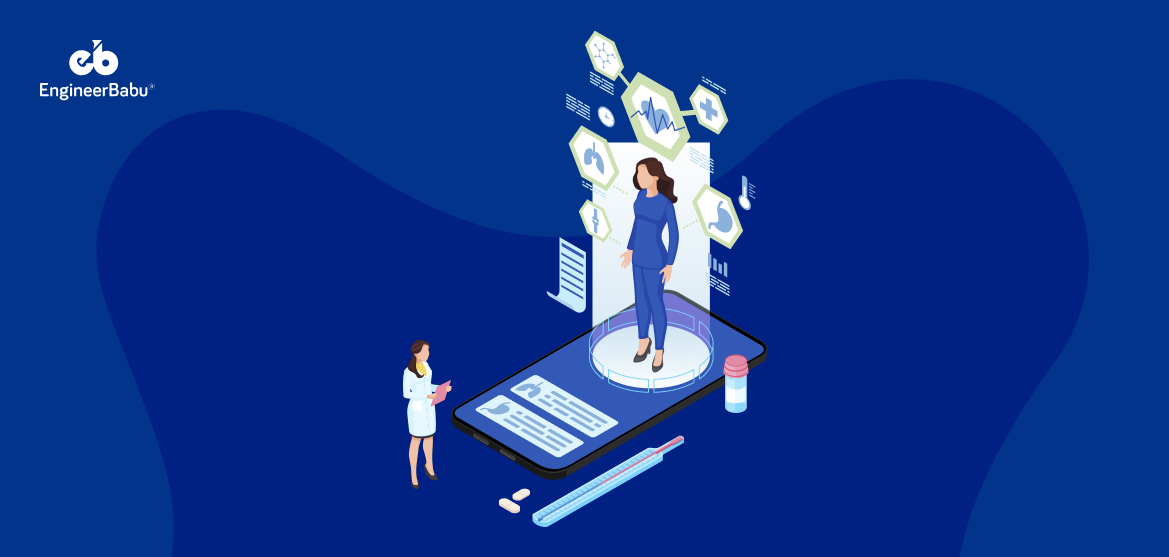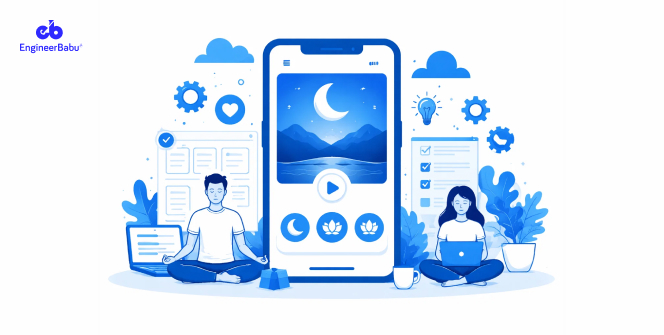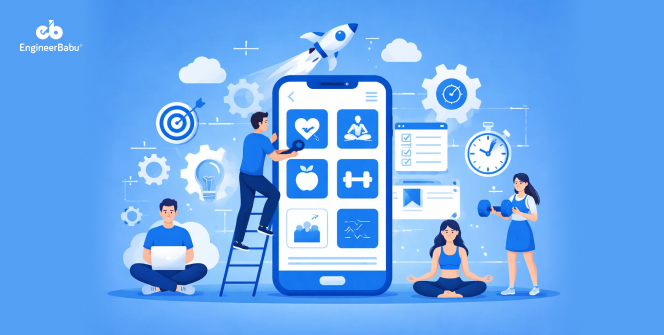Healthcare apps that handle sensitive patient data must comply with HIPAA regulations. Failure to do so can result in severe legal and financial consequences, including fines of up to $1.5 million per year.
For healthcare entrepreneurs, app developers, and investors, it is essential to understand which types of apps fall under HIPAA requirements. Not all healthcare-related apps are covered, but those that store, transmit, or interact with Protected Health Information (PHI) typically must comply.
This guide outlines the specific categories of healthcare apps that require HIPAA compliance, highlights common gray areas, and offers practical steps to ensure your digital health product meets regulatory standards.
What is HIPAA and Why Does It Matter for Apps?
The Health Insurance Portability and Accountability Act (HIPAA) is a U.S. law that sets national standards for protecting sensitive patient health information. It applies to healthcare providers, insurance companies, and any business that handles Protected Health Information (PHI) on their behalf.
For healthcare apps, HIPAA compliance becomes necessary when an app creates, stores, transmits, or processes PHI. This includes medical records, diagnostic information, billing details, and even identifiable health data collected through wearable devices.
There are three key HIPAA rules relevant to healthcare apps:
- Privacy Rule: Protects the confidentiality of PHI.
- Security Rule: Requires secure handling of electronic PHI (ePHI).
- Breach Notification Rule: Mandates reporting any unauthorized access to PHI.
Understanding HIPAA requirements is critical for any digital health startup looking to launch, scale, or partner with healthcare providers.
PHI (Protected Health Information): The Deciding Factor
HIPAA compliance depends on whether an app handles Protected Health Information (PHI). PHI includes any information that relates to a person’s physical or mental health, healthcare services, or payment for healthcare—and that can identify the individual.
If your app collects or interacts with data such as:
- Medical records
- Lab results
- Appointment schedules
- Insurance details
- Health tracking synced to a clinical system
Then it likely falls under HIPAA regulations.
Even apps that simply transmit PHI — without storing it — are required to comply. Startups often miss this point, assuming that if they don’t store data, they are exempt. That’s incorrect under HIPAA rules.
If PHI is involved, HIPAA compliance is required.
Categories of Healthcare Apps That Must Be HIPAA Compliant
Several types of healthcare apps almost always require HIPAA compliance because of how they handle PHI:
Telemedicine Apps
Telemedicine platforms facilitate real-time video consultations, remote diagnostics, and treatment planning between patients and licensed healthcare providers. Since these apps involve direct access to medical histories, prescriptions, diagnostic results, and other sensitive health data, HIPAA compliance is mandatory. Examples include virtual urgent care services, teledermatology platforms, and remote psychiatric consultations.
Mental Health and Therapy Apps
Apps that offer counseling sessions, psychiatric assessments, or mental health tracking fall under HIPAA if they involve licensed therapists or healthcare providers. Even apps that manage therapy appointments, session notes, or patient progress reports qualify as handling PHI. HIPAA compliance is crucial for protecting sensitive mental health information, which is often even more privacy-sensitive than physical health data.
Chronic Disease Management Apps
Apps built to assist patients in managing long-term conditions like diabetes, hypertension, COPD, or heart disease typically process PHI. These platforms often track medication adherence, vital signs, and lifestyle changes, and sometimes allow communication with healthcare teams. If an app offers features like insulin tracking integrated with a provider or heart rate monitoring shared with a cardiologist, it must follow HIPAA standards.
Mobile EHR Apps
Mobile apps that access, update, transmit, or store Electronic Health Records (EHRs) are directly tied to PHI. Whether patient-side (allowing patients to view records) or provider-side (allowing doctors to update charts), these apps must ensure encrypted transmission, user authentication, and strict access controls to meet HIPAA’s Privacy and Security Rules.
Health Insurance Apps
Apps that enable users to view insurance plans, submit claims, check eligibility, or review explanations of benefits (EOBs) handle sensitive personal and financial health data. HIPAA compliance applies to these apps because they connect patient identity with healthcare transactions and billing information, making the data protected under the law.
Medical Billing Apps
Apps designed for invoicing, processing payments, or managing patient accounts within a healthcare context involve PHI when they tie payment records to medical services. Whether the app serves patients directly or supports back-office operations for providers, HIPAA rules require these platforms to secure billing-related health information.
If your app falls into any of these categories, HIPAA compliance is mandatory from the very first line of code.
Grey Area Apps: When Compliance Is Still Required
Some apps don’t immediately look like healthcare apps but still trigger HIPAA requirements because of how they interact with PHI.
Common examples include:
- Fitness or Wellness Apps that integrate with hospitals or providers.
- Medication Reminder Apps that access prescribed medications or sync with healthcare systems.
- Health Coaching Apps tied to doctor-supervised programs or clinical records.
If an app operates independently without accessing provider data, it might not require HIPAA compliance. But if it connects with a doctor’s system, an insurance database, or a hospital network — even indirectly — compliance is needed.
When in doubt, it’s safer to assume HIPAA applies and seek legal guidance early.
Apps That Typically Don’t Need HIPAA Compliance (But Should Still Protect Data)
Apps that deal with general wellness, fitness, or lifestyle data without connecting to healthcare providers typically don’t fall under HIPAA. These include:
- Standalone fitness trackers not tied to clinical care
- Nutrition and diet apps offering generic advice
- Meditation apps focused solely on mental wellness without professional oversight
However, even if HIPAA doesn’t legally apply, these apps should still follow strong data privacy practices. Public concern around personal health data is growing, and consumer trust is critical for app growth.
Implementing good data security measures is no longer optional—even when HIPAA isn’t mandatory.
Conclusion
Healthcare startups cannot afford to overlook HIPAA compliance. If your app collects, stores, or shares Protected Health Information (PHI), compliance is not optional—it’s a legal requirement.
Understanding which apps need to follow HIPAA rules—and designing your product around these requirements from the start—can save your business from costly penalties, reputational damage, and operational setbacks.
Building a secure, trustworthy healthcare app is not just about legal protection; it’s about earning the confidence of users, partners, and investors in a competitive healthtech market.
Frequently Asked Questions
1. What triggers HIPAA compliance for healthcare apps?
If your app collects, stores, processes, or transmits Protected Health Information (PHI), it must comply with HIPAA regulations.
2. Can a fitness app require HIPAA compliance?
Generally, standalone fitness apps do not require HIPAA compliance unless they share or receive data from healthcare providers or systems.
3. How much does it cost to make an app HIPAA compliant?
HIPAA compliance costs vary widely but typically include expenses for secure infrastructure, legal consultations, audits, and ongoing monitoring. Estimates range from $20,000 to over $100,000, depending on complexity.
4. What happens if a healthcare app is not HIPAA compliant?
Non-compliance can lead to heavy fines, legal action, loss of user trust, and significant delays in partnerships with healthcare providers.
5. How does EngineerBabu ensure HIPAA compliance for healthtech startups?
EngineerBabu specializes in developing HIPAA-compliant healthcare apps by implementing strong security protocols, signing Business Associate Agreements (BAAs), and conducting regular audits. Their experience in digital health ensures your app meets both legal standards and user expectations.



